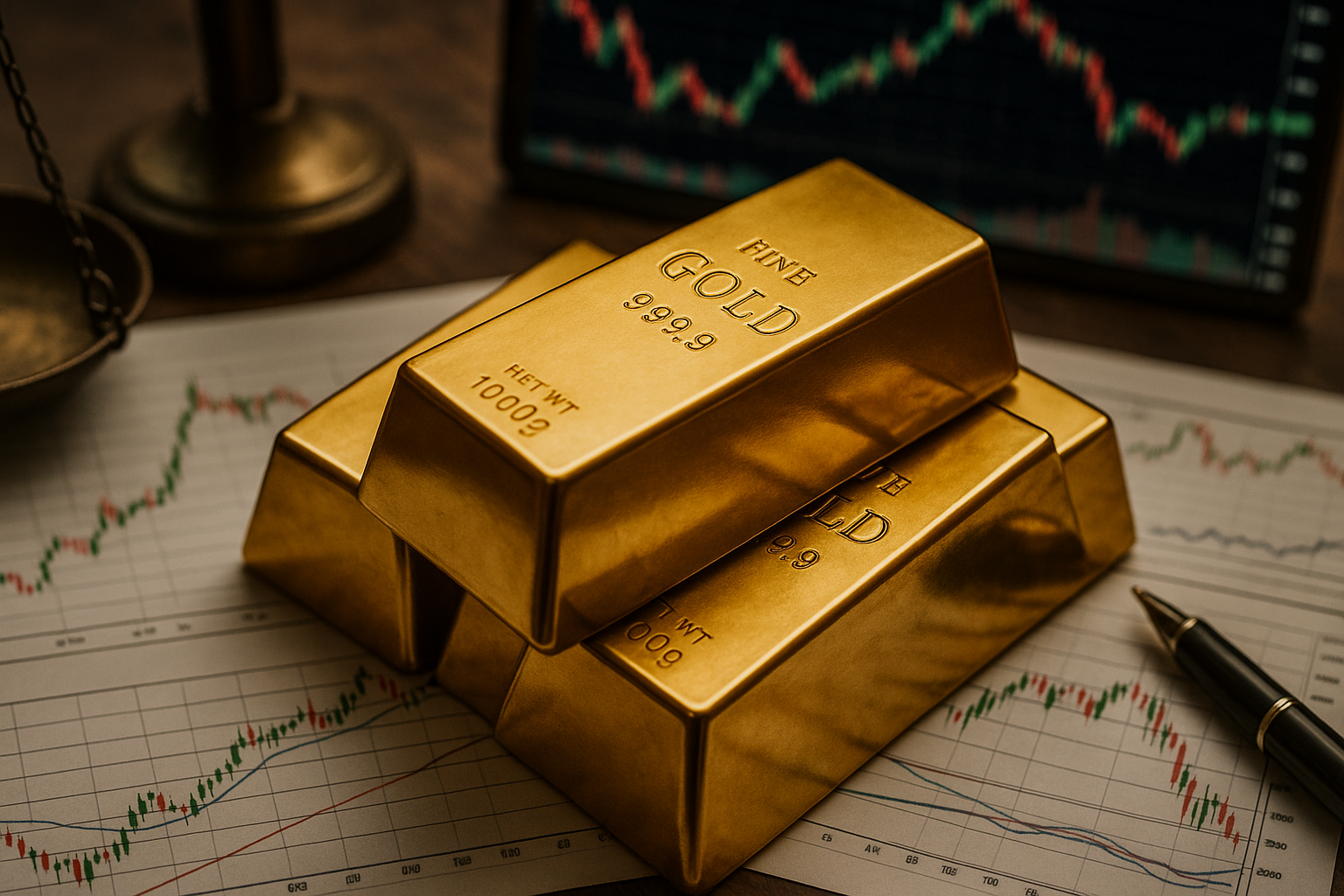Gold has long been cherished not just as a symbol of wealth and beauty but also as a reliable investment. But anyone keeping an eye on the gold market knows that its price doesn’t stay steady—it fluctuates 📉📈. Sometimes it soars to new highs, and at other times it dips unexpectedly. So what really causes these changes in the price of gold?
In this detailed article, we’ll explore the top 4 reasons for fluctuations in gold prices. Whether you’re an investor, a jewelry lover, or just someone curious about the economy, this guide will help you understand the bigger picture. Let's dive in! 🏊♂️
1. Global Economic Stability and Inflation 🌍💸
One of the most significant factors influencing the price of gold is the state of the global economy. When economies are unstable, investors often flock to gold as a “safe haven.” But why is that?
💡 Gold as a Safe Haven
When the stock market is volatile or when currencies are losing value, people look for assets that will hold their value. Historically, gold has been seen as a reliable store of value during times of uncertainty.
📊 Impact of Inflation
Inflation decreases the purchasing power of currency. As inflation rises, the value of money falls, but the value of gold often remains stable or even increases. That's why during inflationary periods, gold prices usually go up.
2. Interest Rates and Monetary Policy 🏦📉
Interest rates, controlled by central banks like the Federal Reserve (USA) or the RBI (India), have a strong impact on gold prices.
🔁 Inverse Relationship
There is an inverse relationship between interest rates and gold prices. When interest rates are high, people tend to invest in assets that earn interest, like bonds or savings accounts. When rates are low, gold becomes more attractive because the opportunity cost of holding it is lower.
💳 Money Supply
When central banks print more money (quantitative easing), it often leads to higher gold prices. That’s because an increase in money supply can lead to inflation, which—again—drives investors toward gold.
3. Geopolitical Tensions and Uncertainty 🕊️⚔️
Political instability and international conflicts can make traditional investments seem risky. During these times, the demand for gold often rises.
🌐 Examples of Geopolitical Events
- Wars or military conflicts
- Trade disputes between major countries
- Major elections or political upheaval
- Natural disasters or pandemics
All these events increase uncertainty in the global markets. And whenever there is uncertainty, gold benefits.
🛡️ The Safe Asset
Investors view gold as a “hedge” against geopolitical risk. It doesn’t rely on any one government or corporation, making it more secure during unstable times.
4. Supply and Demand Dynamics ⛏️📦
Like any other commodity, gold prices are affected by supply and demand. If more people want gold and there’s less available, prices rise. If supply increases or demand drops, prices fall.
⛏️ Gold Mining and Production
Gold is not easy to extract. It requires expensive mining processes. If major mines close down or if it's harder to extract gold, the supply shrinks, pushing prices up.
📈 Rising Demand
Gold is not just used for investment. It’s also used in jewelry, technology (like smartphones and computers), and by central banks. An increase in demand from any of these sectors can push the price higher.
👑 Cultural Demand
In countries like India and China, gold is deeply ingrained in cultural and religious traditions. During festivals and wedding seasons, the demand skyrockets—which can impact prices globally.
📌 Final Thoughts
The price of gold is influenced by many interconnected factors. Economic trends, central bank policies, global tensions, and good old supply and demand all play a role. 📊
By understanding these top 4 reasons, you’ll be better equipped to make informed decisions—whether you’re investing in gold, buying jewelry, or simply keeping an eye on the economy. 💼💍
Thanks for reading! If you found this article helpful, consider sharing it with friends and family. Sharing knowledge is golden! 🥇

